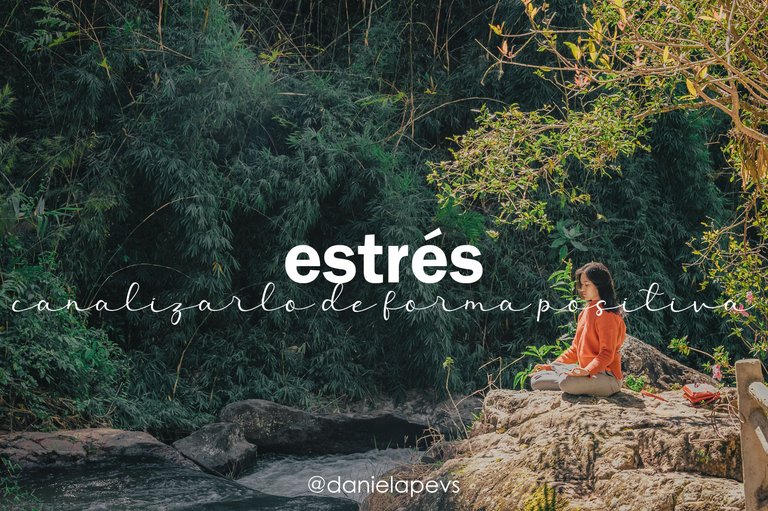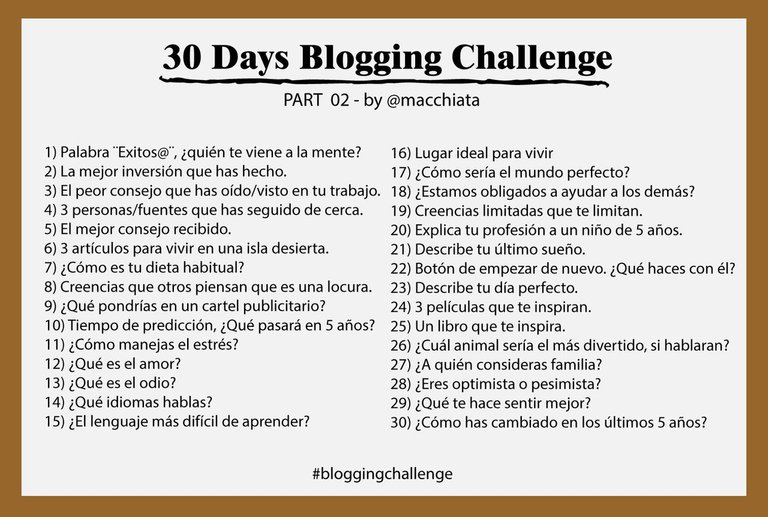How to manage stress || Cómo manejar el estrés


Algunas veces como personas debemos aprender a canalizar las situaciones de nuestra vida para poder sobrellevarlas. Una de esas situaciones son el estrés, es inevitable no sentirnos estresados, éste sentimiento suele ligarse en ciertas ocasiones con la ansiedad y la sensación de derrota.
Aunque realmente éste se debe es al deseo de tener control sobre las cosas, de que cada movimiento salga de la forma en la cuál necesitamos que salga, cuando algo desajusta esa planificación es cuando comenzamos a sentirnos de dicha forma.

Sometimes as people we must learn to channel the situations in our lives in order to cope with them. One of those situations is stress, it is inevitable not to feel stressed, this feeling is often linked on certain occasions with anxiety and a sense of defeat.
Although this is really due to the desire to have control over things, that every movement goes the way we need it to go, when something mismatches that planning is when we begin to feel that way.

La premisa en ésta ocasión en el bloggin challenge es: ¿Cómo manejas el estrés?
Y aunque me gustaría tener una receta mágica para poder conseguirlo, lo cierto es que el poder 'manejarlo' se ha debido a un camino largo de proceso personal, trabajo interno y lo más importante, aprender a soltar. Debemos de meditar de forma muy atenta nuestra necesidad de control sobre algunas cosas, yo era una persona que debía tener todo premeditado, nada podí salirse de esa línea.
Pero cuando esas cosas suceden, el bombardeo de pensamientos se acercaba a grandes zancadas y el estrés siempre terminaba ocasionándome una migraña. No digo que actualmente no me estrese, pero si he mejorado bastante esas situaciones.
The premise of this bloggin challenge is: How do you handle stress?
And although I would like to have a magic recipe to achieve it, the truth is that being able to 'handle it' has been due to a long way of personal process, inner work and most importantly, learning to let go. We must meditate very carefully on our need to control some things, I was a person who had to have everything premeditated, nothing could get out of that line.
But when those things happen, the bombardment of thoughts would come in great strides and the stress would always end up giving me a migraine. I'm not saying that I don't stress nowadays, but I have improved a lot in those situations.

Considero que la herramienta más importante es la de aprender a soltar, soltar personas, trabajos, situaciones y pensamientos. Lamentablemente cuando tenemos cierto vínculo importante con cualquiera de lo mencionado anteriormente, inmediatamente se enciende nuestra necesidad de tener todo bajo control, que todo tenga que salir de acuerdo a lo estipulado en tu cabeza, eso incluye el reprimir algunos sentimientos porque 'pueden arruinar otra situación'.
Realmente, cuando las cosas se salen de esa línea ya no encontramos que más hacer, es dónde vienen los nervios, la frustración, la ansiedad, nos volvemos rapidamente vulnerables a nuestro ambiente.
Mi respuesta más certera y la solución que yo he conseguido es la de aprender a soltar, respirar y entender que las cosas viajan a su tiempo, que el río mantiene su propio ritmo, al igual que las nubes y las gotas de lluvia, son cosas que no podemos alterar. Simplemente debemos aceptar la situación, meditarla y continuar, porque la vida nos brinda muchas más oportunidades que situaciones que nos sometan al estrés.
I consider that the most important tool is to learn to let go, to let go of people, jobs, situations and thoughts. Unfortunately when we have a certain important link with any of the above mentioned, we immediately turn on our need to have everything under control, that everything has to go according to what is stipulated in your head, that includes repressing some feelings because 'they can ruin another situation'.
Actually, when things get out of line we don't find what to do anymore, that's where the nerves come in, the frustration, the anxiety, we quickly become vulnerable to our environment.
My most accurate answer and the solution that I have achieved is to learn to let go, breathe and understand that things travel at their own time, that the river keeps its own rhythm, just like clouds and raindrops, these are things that we cannot alter. We must simply accept the situation, meditate on it and move on, because life gives us many more opportunities than situations that subject us to stress.

Sin más nada por agregar, me gustaría invitarlos a unirse a 'Bloggin Challenge' si aún no lo habéis hecho. Aquí teneís un link directo en dónde encontraréis todas las partes (o casi todas). ❤️
Without further ado, I would like to invite you to join the 'Bloggin Challenge' if you haven't already done so. Here you have a direct link where you will find all the parts (or almost all of them). ❤️


Translated with the help of deepL
Photo edited in Adobe Photoshop CC
Excelentes palabras, otra herramienta puede ser mantenerse ocupado en diferentes actividades productivas para no permitir que esos pensamientos nos agobien e inunden nuestra mente, el mantener el problema allí latente es lo peor que se puede hacer
Ciertamente, yo en su mayoría me pongo a leer o a hacer ejercicio para disipar esos pensamientos. Gracias por leerme! Un abrazo.
Aprender a soltar es lo más importante que debemos aprender, realmente no es fácil porque a veces nos aferramos a ciertas cosas, pero bueno, es cuestión de seguir intentando y dejarlo a un lado. Saludos!
Es un trabajo que toma su tiempo pero valen los resultados. Un abrazo! Gracias por leerme.